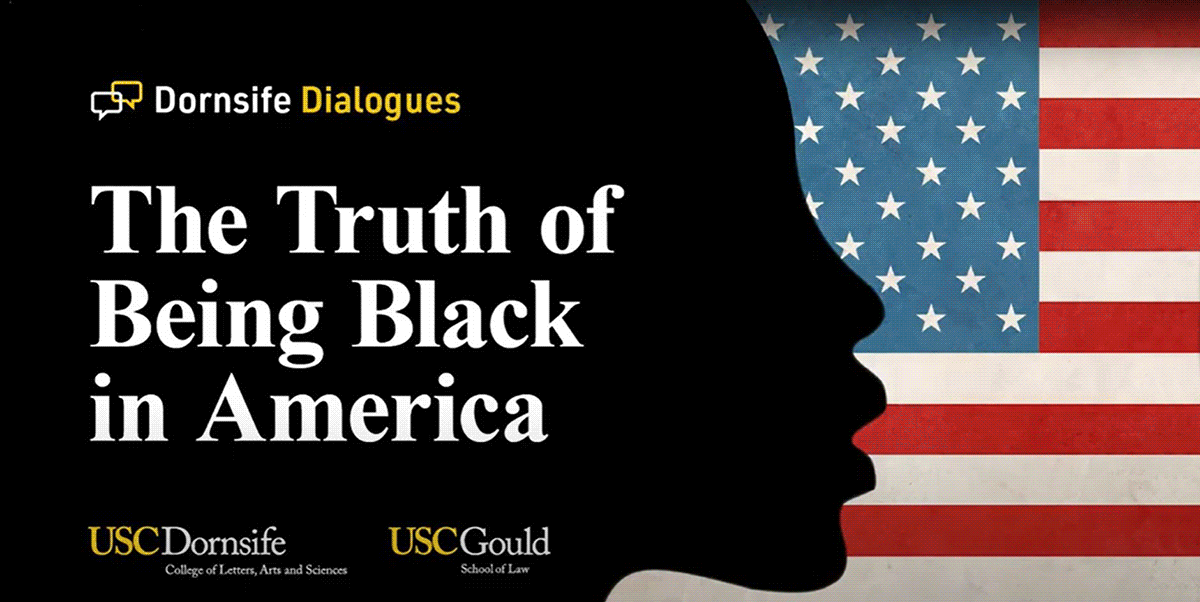The Evolution of Virtual Volunteering

Kaleidoscope Art Credits: naqiewei/DigitalVision Vectors/Getty Images
Sometimes, a personal connection can be just what a student needs to thrive.
Mary Boissel learned that in her 20 years as a teacher in Dublin, Ireland, and it’s what led her to volunteer for her alma mater when she retired. Now, as an alumni buddy for University College Dublin, she helps international students adjust to life in Ireland. In her three years as a volunteer, Mary’s taken students to lunch, chatted about work and studies, invited them to her home—even offering one student a place to stay before a new job started.
When the COVID-19 pandemic sent the city into lockdown, Boissel and her fellow volunteers had to find creative methods to stay virtually connected with their buddies. She and her buddy—a student who loves to write—exchange texts now and check in about her classwork and family.
“The key to all this,” Boissel says, “is goodwill and the capacity to adapt and change.”
Around the globe, advancement teams and the alumni they work with have adapted to the challenges and opportunities of virtual volunteer engagement. These online activities—from mentoring and student career guidance to planning online events to community service—offer institutions new and reimagined ways to engage alumni.
Here’s how advancement professionals have adapted to work with alumni volunteers online—and the key strategies they’ve used to make these virtual opportunities a success.
Migrating Online

Volunteerism, according to CASE’s 2018 Alumni Engagement Metrics white paper, is one of the four core dimensions of alumni engagement. Alumni volunteer activities typically fall into one of five arenas, outlined in CASE’s 2018 Alumni Relations Survey: student recruitment, fundraising, speaking or presenting, mentoring, and administrative work (like serving on committees or planning events). Beyond that, some institutions also organize service projects for charitable causes. Traditionally, most of these volunteer activities occur in-person or on campus.
In the nonprofit world, though, virtual volunteering has picked up speed in the last two decades. The United Nations’ Online Volunteering service was launched in 2000, followed by volunteer matching sites like Idealist and VolunteerMatch, and today the UNOV reports engaging 12,000 online volunteers globally a year. The COVID-19 pandemic in 2020 has set the stage for virtual volunteering to grow even more: According to a May 2020 VolunteerMatch study, 45% of nonprofit leaders say they’ve created virtual volunteering opportunities because of the pandemic.
Now, amid COVID-19’s lockdowns and social distancing, advancement teams have had to make this shift, too.
“The virtual piece has given us a lot of opportunity,” says Ria Flom, UCD’s alumni relations coordinator – alumni volunteering. Even if the transition is a trial-and-error process, “it’s worth us doing it because even if we’re in a virtual room, we’re still making the effort to be present with each other.”
The first step for many institutions was pivoting to deliver planned volunteer programming like board meetings and trainings online. The University of Tennessee, Knoxville, U.S., for instance, held its Volunteer Leadership Weekend online in April, connecting 179 volunteers via Zoom to plan chapter activities. Similarly, The Ohio State University (which works with 2,000 volunteers in 170 alumni groups) moved its October volunteer leadership training online and held online roundtable discussions with volunteers on virtual activities.
New and Evolving Opportunities
Reimagined online, popular volunteer projects can take new shape. Take the University of Southern California Dornsife College of Letters, Arts, and Science’s career programming. Now, amid an uncertain job market, there’s been an uptick in interest in career resources, says Rodger Devine, associate dean of external affairs for strategy and innovation at the Los Angeles institution. USC Dornsife moved its signature Gateway Internship Program (powered by volunteer alumni mentors) online for summer 2020. It also offered mentorship program and a suite of online career development seminars featuring alumni as guest speakers. Volunteers spoke on timely topics like navigating job and internship searches (in the absence of career fairs), online networking, on-the-job etiquette and personal leadership. In addition to the internship program, the USC Dornsife Alumni Mentorship Program gives students the chance to connect with alumni for career exploration, job shadowing, and networking.
“For these virtual offerings we paired recent graduates with other alumni, friends, and staff to help propel them towards success and navigate uncertainties,” Devine says.
Online, students can connect with mentors more frequently and mentor attendance is up, because online events are more accessible
Like USC Dornsife, the University of Auckland reconfigured a key engagement opportunity online. The New Zealand university’s inaugural Volunteer Impact Week in 2019 (a CASE Platinum Award finalist) celebrated volunteers and connected them to in-person causes like donating books to build 22 community Little Free Libraries in Tonga. For the 2020 iteration held June 21-27 during New Zealand’s National Volunteer Week, 250 alumni participated in university-run projects like mentoring young alumni online or sending words of wisdom to graduating students.
Beyond that, Auckland partnered with Volunteering New Zealand and volunteering centres across the country to connect alumni with hundreds of opportunities to help in their community, from knitting socks to calling homebound seniors. Auckland also shared stories of alumni volunteers online, which cultivated a “sense of belonging and purpose in a really uncertain time,” says Joel Terwilliger, alumni relations manager. “We could match our community human capital and goodwill with opportunities to make a difference and be part of helping rebuild New Zealand.”
Besides modifying or re-envisioning existing programs, some advancement teams have launched entirely new online volunteer opportunities. University College Dublin, for instance, initiated a global alumni ambassadors program in spring 2020 using the online platform Graduway. Alumni volunteers reach out to international students who’ve been offered a place at UCD but haven’t enrolled yet. Volunteers answer questions about majors or connect students to resources—all to help students (who may not be able to travel to campus) make their decision. More than a hundred alumni have signed up.
Giving Back, Growing Broader Connections

MOBILIZING SUPPORT: The Yale School of Medicine coordinated delivery of nearly 200,000 pieces of personal protection equipment donated to the Yale New Haven Health System by a Yale alumnus. This was just one of the Connecticut institution's support efforts to combat the COVID-19 pandemic.
Virtual volunteer work—especially amid COVID-19—offers alumni a chance to give back to their communities at a time of need. Stories abound of institutions around the globe organizing volunteers online to fundraise for personal protective equipment (like the Yale School of Public Health in New Haven, Connecticut, U.S.), check in on senior alumni (Queens University in Ontario, Canada), or share mental health and wellness information (University College London, U.K.).
Plus, virtual opportunities can connect alumni to students—which they’re more eager than ever to do, says Rodie Lloyd, director of alumni relations at Bowdoin College. The Brunswick, Maine, U.S., college recruited alumni volunteers who graduated in 2008 or 2009 during the Great Recession to speak with students who are graduating now amid the pandemic.
“Our volunteers are most interested in a role that helps students,” Lloyd says. “They’re happy to help each other and they do all the time, but you get more hands up more quickly when it’s an effort to help the student.”
These online opportunities can expand participation to alumni around the world who may not have engaged with their institutions before. Bowdoin convened its spring volunteer conference online and for it and other volunteer asks, they can reach graduates in far-flung locales, says Lloyd. Similarly, UT Knoxville had 40 more participants in its 2020 virtual Volunteer Leadership Weekend than for the in-person event the year before. Sometimes in-person opportunities just don’t fit into volunteers’ schedules, says Duane Wiles, associate vice chancellor for alumni affairs.
“This was more convenient to connect via Zoom for a couple of hours as opposed to spending two days out of town,” Wiles said. UT Knoxville is organizing more regular virtual check-ins with chapter leaders, and Wiles himself met virtually one-on-one with 48 volunteers.
“It certainly has given us within our office an opportunity to be creative and spend more time with our volunteer leaders,” he says.
Stress, Technology Hazards
Despite the benefits of virtual volunteer engagement, there are unique challenges to planning online engagement activities.
“The biggest challenges of engaging our alumni are stress, fatigue, and availability,” says USC Dornsife’s Devine. Beyond that, Zoom fatigue and technology hurdles can make virtual experiences seem less meaningful than in-person pursuits.
“The pandemic has challenged and, in many cases, overwhelmed the initial capacities of all of our systems—human, social, and technological—so we’re continuing to learn each day,” he says.
Volunteers who are juggling caretaking responsibilities or stressors from COVID-19 may not have the capacity to participate, and it’s more important than ever to be mindful of that, says John Feudo, vice chancellor for advancement at the University of Massachusetts Lowell, U.S., and author of Herding Cats: Managing Volunteers for Success.
“We still need to be thoughtful about what we ask volunteers to do. Now in this COVID-19 world, we should be more realistic of the expectations we have of them,” says Feudo. Amid social change, he says, volunteers fall into two camps: “Some are hesitant to commit to anything because they don’t know how their life may change from one day to the next. And on the other hand, you have people who need the connection and the sense of purpose and process.”
Adapting for Impact: Keys to Success
To navigate these challenges of virtual volunteering, thoughtful planning is key. Here are four fundamental steps that alumni relations professionals say are crucial for productive virtual experiences.
1. Communicate clearly and personally. Whether asking volunteers to raise funds in new ways, host a virtual talk, or reach out to fellow alumni online, ongoing communication is vital. For instance, amid COVID-19, the annual giving team at Bowdoin created new digital volunteer resources, like an in-depth website and talking points about the college’s COVID-19 responses. That clear communication is essential to volunteer management—and more important than ever, Feudo says.
“The best volunteer training is simply ongoing communication,” he says, pointing out that soliciting volunteers’ opinions is also key for retention. “They want to feel like insiders, so we have to treat them like they’re insiders. That’s actually the one of the biggest ways of retaining volunteers: Make them feel like their perspectives are appreciated and are welcomed.”
Stewardship means supporting volunteers throughout their role, says UCD’s Flom. That entails personally nourishing those relationships, checking in with volunteers, and reiterating the purpose of the work.
2. Rethink the structure of your activities. When it took its Volunteer Leadership Weekend online, UT Knoxville condensed two days of programming into two hours—because volunteers can’t spend the entire day online, says Wiles. He and his team made the sessions succinct and as interactive as possible using the chat feature and giving participants the chance to ask questions. It helped, too, that they kicked off the meeting by playing the university fight song.

3. Experiment with ideas and technology. Effective web-based technologies are essential for virtual volunteer experiences. Devine holds up USC Dornsife Dialogues as a successful example: In these online Zoom lectures (free for the entire university community), prominent alumni volunteers give presentations on important topics like women’s leadership, economic resilience, political discourse, and race/equity, among others. But it may take testing to make sure those technologies work smoothly and determine the support volunteers need to use them—for instance, asking savvier alumni to act as a bridge to help others who may need additional support to connect, he says.
“For those of us in the volunteer management space, we should draw on our own experiences as volunteers at similar or like organizations and bring those ideas forward and experiment,” says Devine, who volunteers as a mentor with his alma mater, the University of Michigan. “The design thinking model suggests that you want to fail early and often to figure out solutions quickly. Go back, get feedback, and then continuously iterate to move forward.”
4. Give volunteers a chance to solve real problems. Twenty-nine percent of students at University College Dublin hail from outside Ireland—so amid the pandemic’s uncertainties, reaching out to international students became a priority. That’s why Flom and her colleagues developed the global alumni ambassador program: to meet an essential institutional goal.
“If you can weight [a volunteer project] towards solving a problem on campus, it will have longevity or it will land for people,” she says.
The program was also a product of collaboration between UCD’s alumni relations team and student recruitment unit. Collaborating with other divisions across the university can help teams identify needs that volunteers can support. At the University of Auckland, Terwilliger and his alumni relations colleagues partnered with student-facing staff to move alumni-student volunteer programs online, like the Business School's Women’s Mentoring Programme, the Coffee Mates Programme in Law, or the Workplace Insights Programme for international students.
“It’s important to build those partnerships across the university,” Terwilliger says. “Really communicating how we have a shared vision of supporting students was essential to building that goodwill in collaboration.” Those partnerships will be instrumental in Auckland's plan to roll out its informal mentoring platform, Alumni Connect, to students this year.
Gratitude and Community

As a thank you for their service, dozens of Bowdoin College volunteers receive festive personalized birthday cards each month. Though the pandemic disrupted that process, volunteers still receive a thank you message. Now, it’s a peppy virtual card. However volunteers are pitching in, this principle of volunteer management holds true: gratitude matters.
“The more that you can say, ‘thank you,’ the better,” Feudo says. “They want to know that their time and efforts are being valued.”
Acknowledgement doesn’t have to be flashy. While some teams use creative virtual means like personalized videos to steward volunteers, simple phone calls, emails, or small tokens are still valuable for nourishing volunteer relationships. Both Bowdoin and UCD have offered gift certificates to the campus online bookstore; Flom sent volunteers chocolates when the pandemic ramped up in March.
Ultimately, with thoughtful planning and solid communication, virtual volunteer experiences can help alumni feel rooted to their community, says Auckland’s Terwilliger. While it may be more challenging to forge those connections online, they can be powerful.
In 2020, a University of Auckland graduate started Safe Hands Kenya, a project that brings soap, handwashing stations, and masks to Kenyans. Another graduate launched Dreams for the Decade, an art/poetry project for children across New Zealand; submissions from the project are now informing Five to Thrive, an initiative to support youth through policymaking.
Terwilliger shared stories like these online. Celebrating impact “gives people hope and something to connect to in a difficult time,” he says. Even small virtual acts of kindness—sharing a story, chatting with a student about career pathways, presenting to young alumni, calling a senior quarantined at home—can have great significance, he points out.
“For universities, that’s our superpower: facilitating those connections and coming together around issues that matter to society and to the world,” he says.
About the author(s)
Meredith Barnett is the Managing Editor at CASE.
Tags
Article appears in:

November - December 2020
DIGITAL ONLY ISSUE
Taking the sci-fi out of AI: making artificial intelligence work for advancement. Plus virtual volunteering, dementia and alumni relations, and integrating advancement.








